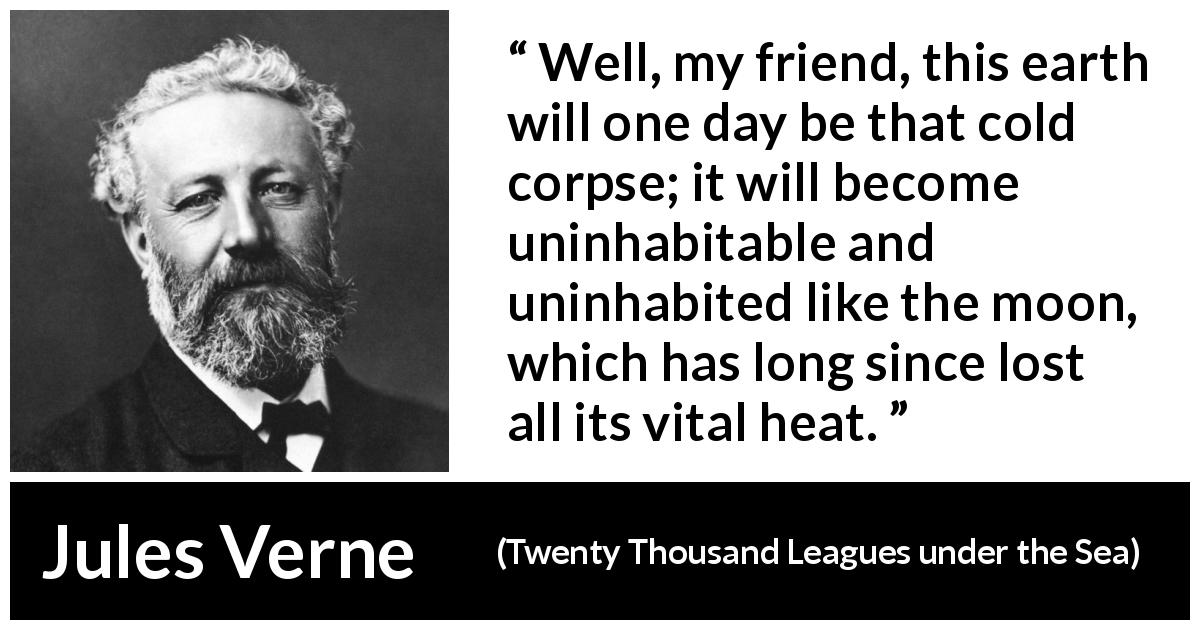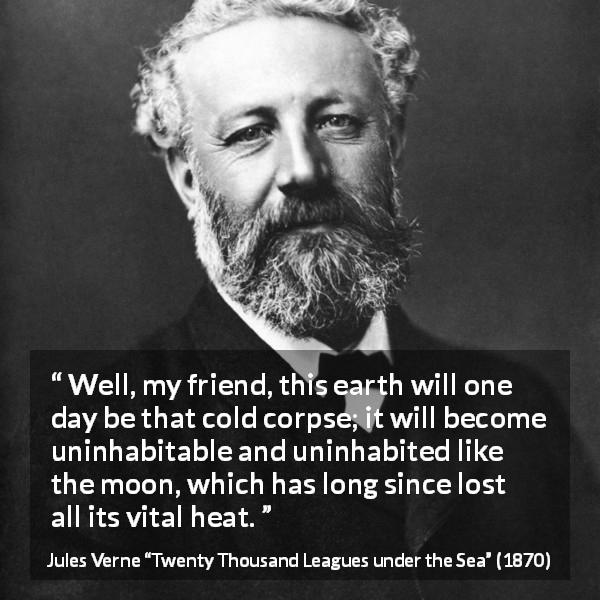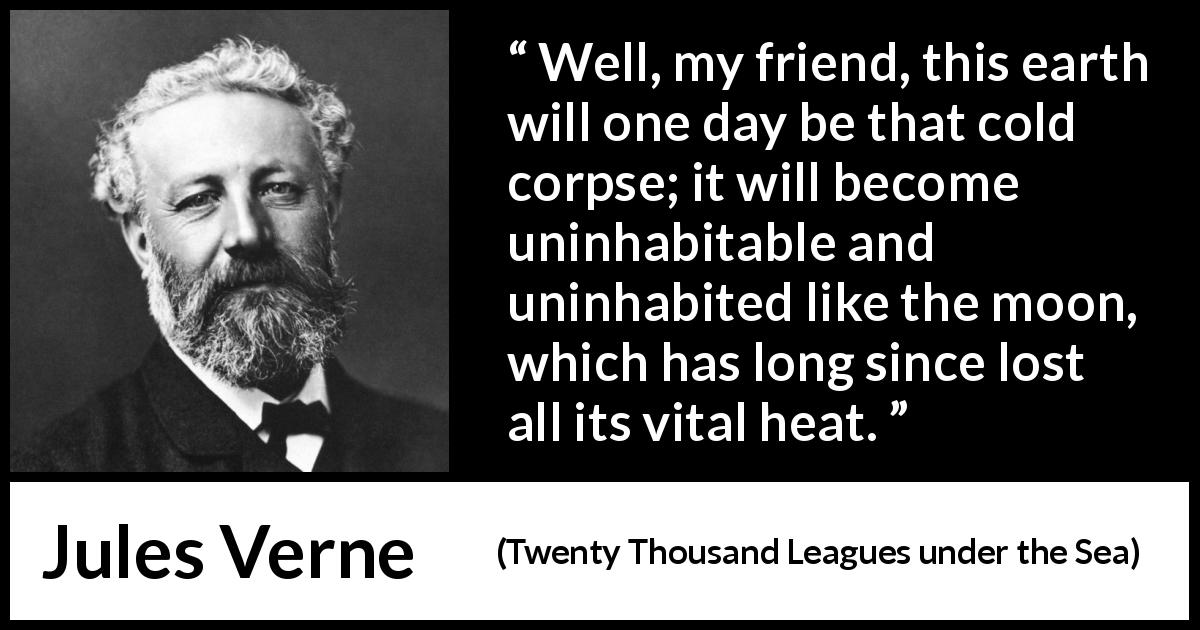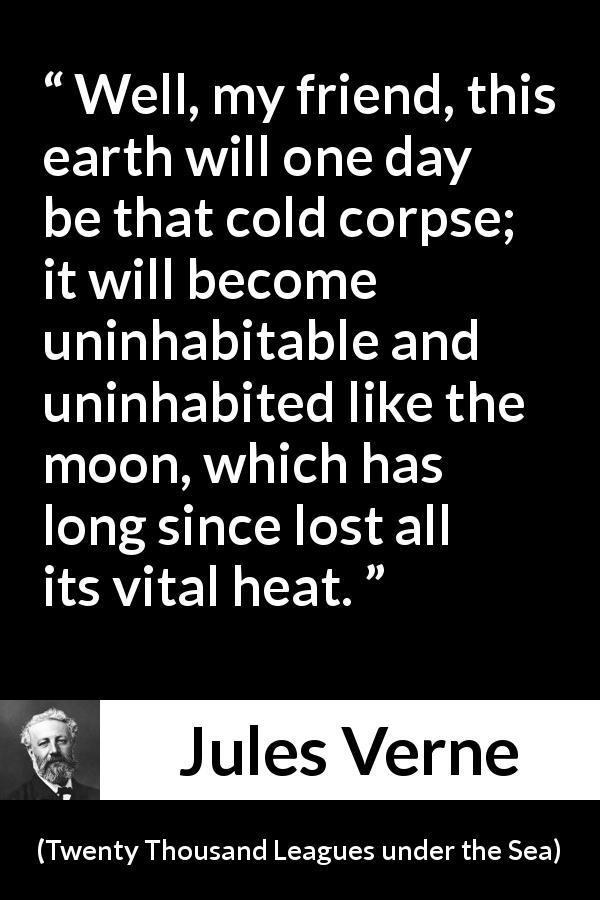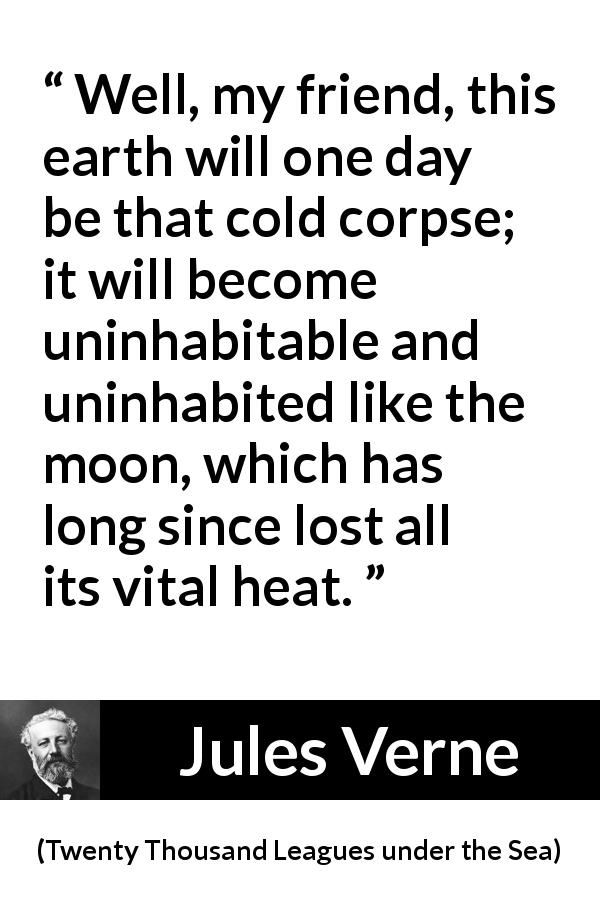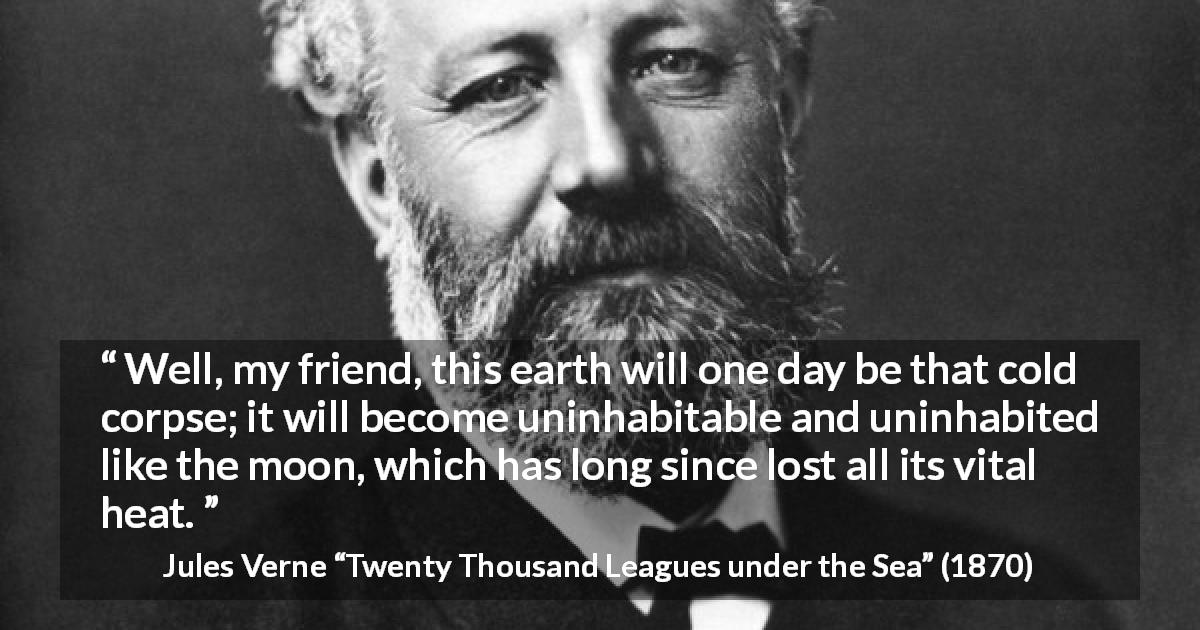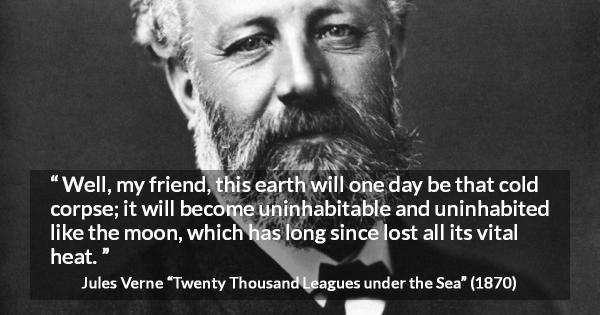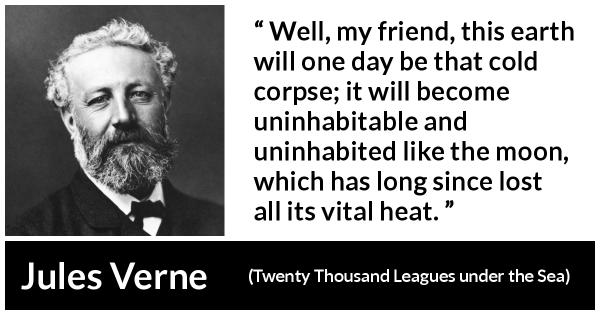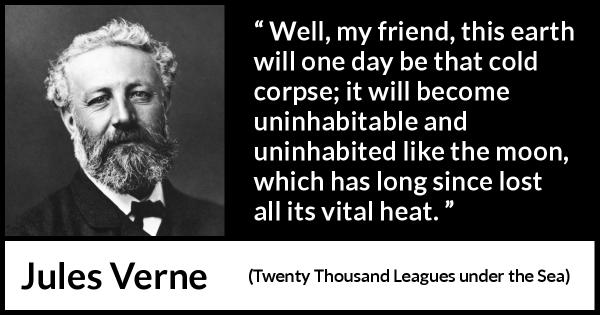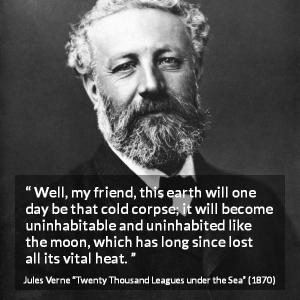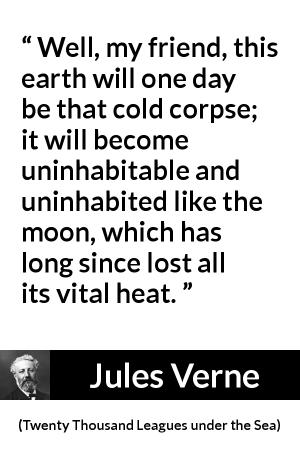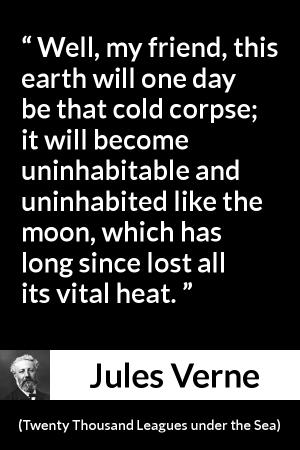“ Well, my friend, this earth will one day be that cold corpse; it will become uninhabitable and uninhabited like the moon, which has long since lost all its vital heat. ”
Jules Verne, Twenty Thousand Leagues under the Sea (1870). copy citation
| Author | Jules Verne |
|---|---|
| Source | Twenty Thousand Leagues under the Sea |
| Topic | moon earth heat cold |
| Date | 1870 |
| Language | English |
| Reference | |
| Note | Translated by Lewis Page Mercier |
| Weblink | http://www.gutenberg.org/files/164/164-h/164-h.htm |
Context
“Volcanoes, so plentiful in the first days of the world, are being extinguished by degrees; the internal heat is weakened, the temperature of the lower strata of the globe is lowered by a perceptible quantity every century to the detriment of our globe, for its heat is its life."
"But the sun?"
"The sun is not sufficient, Conseil. Can it give heat to a dead body?"
"Not that I know of."
"Well, my friend, this earth will one day be that cold corpse; it will become uninhabitable and uninhabited like the moon, which has long since lost all its vital heat."
"In how many centuries?"
"In some hundreds of thousands of years, my boy."
"Then," said Conseil, "we shall have time to finish our journey—that is, if Ned Land does not interfere with it."” source
"But the sun?"
"The sun is not sufficient, Conseil. Can it give heat to a dead body?"
"Not that I know of."
"Well, my friend, this earth will one day be that cold corpse; it will become uninhabitable and uninhabited like the moon, which has long since lost all its vital heat."
"In how many centuries?"
"In some hundreds of thousands of years, my boy."
"Then," said Conseil, "we shall have time to finish our journey—that is, if Ned Land does not interfere with it."” source
